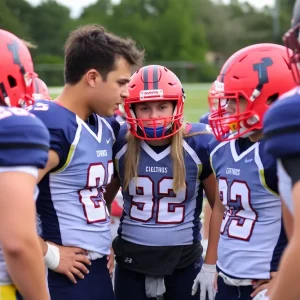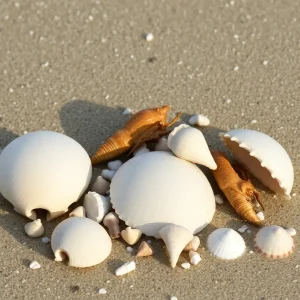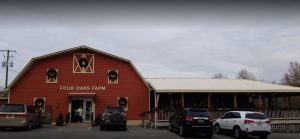Columbia, South Carolina: Tensions Flare at USC as Controversial Event Takes Center Stage
On Wednesday night, things at the University of South Carolina’s Russell House took a turn for the unusual. This usually bustling student union, known for its lively atmosphere filled with students noshing on Chick-Fil-A and studying diligently, transformed into a hub of tension. State and local law enforcement officers patrolled the area, and metal barricades funneled the audience into a constrained path, all in anticipation of a so-called “roast” featuring Vice President Kamala Harris.
A Controversial Guest List
The event, hosted by a student organization called Uncensored America— a group that claims to be nonpartisan and nonprofit—attracted considerable criticism from university officials and civic leaders. The main guests? Far-right figures Gavin McInnes and Milo Yiannopoulos, who both have histories steeped in controversial rhetoric. McInnes, once a founder of the Proud Boys, labeled a hate group by the Southern Poverty Law Center, has been known for his provocative statements. Meanwhile, Yiannopoulos, often referred to as the “pop star of hate,” is infamous for his misogynistic and xenophobic views.
A Divide Among Students
The tension surrounding the event was palpable. As students trickled into the Russell House, you couldn’t help but notice a blend of opinions fashionably showcased through clothing. Some attendees wore campaign gear for former President Donald Trump, while others donned shirts supporting Palestine. Anticipation filled the room as McInnes stepped on the stage around 8:30 p.m., bringing along with him a wave of hecklers—some angry responses, and others that showed undeniable approval.
Mixed Reactions During the Roast
By the time Yiannopoulos concluded his segment around 10 p.m., the ballroom was noticeably less crowded, with many attendees opting to leave in protest. McInnes delivered a profanity-laden tirade, questioning Harris’s racial identity and career achievements, while Yiannopoulos indulged in petty threats to sue various members of the USC faculty, further igniting tensions. The atmosphere was certainly divisive.
Community Response
Outside, a group of 20 to 30 protestors held signs—some reading “Make Facists Afraid” and “Not on our campus – not anywhere.” The expressions of dissent echoed the broader unease within the USC community, particularly among those who felt targeted by the guests. One demonstrator shared her thoughts on the matter, emphasizing the importance of creating a safe space for all communities, especially for LGBTQ individuals who have been the target of slurs from speakers like Yiannopoulos.
Students Seek Alternatives
Recognizing the unrest caused by the roast, USC leaders organized an alternative event a few blocks away called Blatt Bonanza. This gathering featured free food, live music, inflatable obstacle courses, and plenty of enjoyable activities aimed at uniting students in a more positive atmosphere. With over 1,500 students showing up, the excitement was palpable. “This will absolutely set the tone that this university is the University of South Carolina, and this is what we stand for,” said one student leader, embodying the desire for a more positive representation of the university’s spirit.
Free Speech vs. Hate Speech
The debate over the roast has sparked discussions about free speech. While USC’s administration ensured that they weren’t endorsing the event, they found themselves squarely in the center of a heated discourse about the balance between allowing free expression and protecting the community from messages that could incite hate. “Censoring even the most hateful individuals and groups does not solve the problems we face in our society,” university officials stated, illustrating the challenging line they walk as a public institution.
Looking Ahead
As the night concluded, it was clear that the event had stirred a whirlwind of emotions on campus. With calls for further discussions about hate and free speech on the college grounds, it remains uncertain how this experience will shape the future discourse at USC. However, one thing is for sure; the echoes of this roast will likely resonate in classrooms and common spaces long after the lights at Russell House have dimmed.









